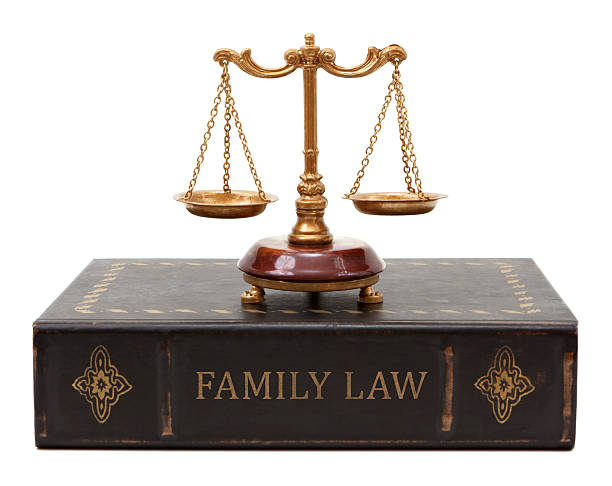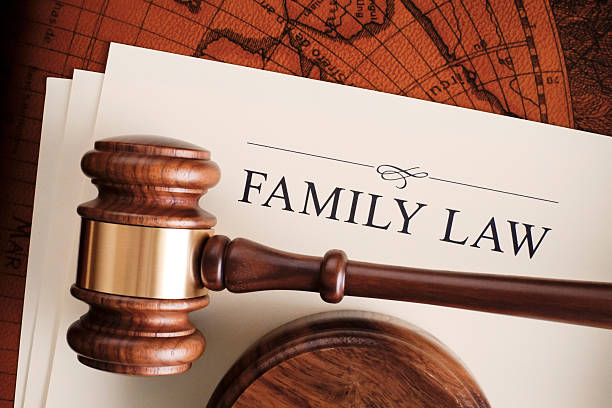This article will discuss suppression and non-publication orders Family Law Act 1975. Both of these orders protect the privacy and confidentiality of individuals involved in family law proceedings.
A suppression order prohibits the publication of certain information about a case’s proceedings, parties, or evidence. This type of order is often made to protect the identity of children or to prevent the publication of sensitive information.
They protect this information since it could cause harm or embarrassment to the parties involved. On the other hand, a non-publication order restricts the distribution or reporting of certain information about the proceedings, parties, or evidence in a case.
This order prevents the disclosure of details about a case that would identify a child or a party to the proceedings. Moreover, the order can prevent the publication of information that could prejudice the fair administration of justice. While these two orders sound similar, they have key differences. These are:
1. Purpose: A non-publication order is typically designed to restrict the reporting of certain information. On the other hand, a suppression order is designed to prevent the publication of information altogether.
2. Scope: A non-publication order typically restricts the distribution or reporting of information by the media. A suppression order may go further and prohibit the publication of information by any person or entity.
3. Enforcement: The consequences of breaching a non-publication order or a suppression order can vary. However, a breach of a suppression order is a more serious offence and may result in harsher penalties.
This article will discuss suppression and non-publication orders in the Family Law Act.
Section 102P: Definitions
Section 102P of the suppression and non-publication orders Family Law Act contains definitions that we will be using in this article. Below is a table that sets out the definitions
| Term | Definition |
| “information” | Any document |
| “news publisher” | A person engaged in the business of publishing news or a public or community broadcasting service that publishes news through a medium |
| “non-publication order” | An order that prohibits or restricts the publication of information. However, this order does not otherwise prohibit or restrict the disclosure of information |
| “suppression order” | An order that prohibits or restricts the disclosure of information |
| “party” | – The complainant/victim/alleged victim in criminal proceedings – Any person named in evidence given in proceedings – A person who was a party to the proceedings before the proceedings concluded |
| “publish” | To disseminate or provide access to the public or a section of the public by means of: – Publication in a book – Newspaper – Magazine, or other written publication – Radio – Television, or internet broadcast – Public exhibition |
Other Preliminary Sections
Here are the rest of the preliminary sections under suppression and non-publication orders Family Law Act. These are:
Section 102PA
Part XIA of the Family Law Act does not limit or affect any other powers that a court may have to regulate its proceedings or deal with contempt of court. Contempt of court is being disobedient or disrespectful of court law and its officers.
Section 102PB
Part XIA of the Family Law Act has no effect on the operation of any provision made by or under any other Act. This Part also prohibits, restricts, or authorises a court to prohibit or restrict, the publication or other disclosure of information in connection with proceedings.
Section 102PC
Part XIA of the Family Law Act and Section 121 do not limit each other. Section 121 of the Act states that it is an offence to publish proceedings that make it easy to identify witnesses or the persons involved in the family law proceeding.
Section 102PE: Power To Make Orders
According to Section 102PE, a court with jurisdiction over proceedings under this Act may issue a suppression order or a non-publication order. These orders will prohibit or restrict the publication or disclosure of information that will reveal the identity of any part or witness in the proceedings. These orders will also prevent the publication or disclosure of Information that:
- Comprises evidence or information about evidence
- Is obtained in the discovery process
- Produced under a subpoena
- Lodged with or filed in the court
Section 102PE of suppression and non-publication orders Family Law Act also states that courts may draft orders that may give effect to suppression or non-publication orders.
Section 102PF: Grounds for Making an Order
On what grounds can a court make suppression orders or non-publication orders? They may make these orders if the order will:
- Prevent prejudice to the proper administration of justice
- Prevent prejudice to the interests of the Commonwealth or a State or Territory in relation to national or international security
- Protect the safety of any person
- Avoid causing undue distress or embarrassment to a party or witness in criminal proceedings. Such criminal proceedings may involve sexual offences or acts of indecency.
Let’s use an example for Section 102PF suppression and non-publication orders Family Law Act. For instance, Krisha filed a case against her husband Kyle for withholding her finances for the entirety of their marriage. Kyle was also guilty of domestic violence when the court proceedings started. Krisha suffered great stress and her doctor diagnosed her with Post Traumatic Stress Disorder (PTSD).
The family court handling Krisha and Kyle’s case saw that they must keep their case confidential. This is because they don’t want Krisha’s PTSD to worsen. Hence, they drafted suppression or non-publication orders to keep the matters confidential.

Section 102PG: Procedure for Making an Order
Section 102PG states the procedure of making an order for suppression and non-publication orders Family Law Act. The court may make such orders on the application of the following people:
- A party to the proceedings concerned
- Any other person considered by the court to have a sufficient interest in making such orders
The people below are entitled to appear and be heard by the court on an application for suppression orders or non-publication orders:
- An applicant for the order
- A party to the proceedings concerned
- The government or an agency of the government of the commonwealth or a state or territory
- A news publisher
- Any other person who has a sufficient interest in whether a suppression order or a non-publication order should be made
A suppression order or non-publication order may be made at any time during proceedings or after proceedings have concluded. Such orders can be made subject to exceptions and conditions the court thinks fit and specifies in the order. Additionally, such orders must specify the information to which the order applies. The information must be supplied with sufficient particularity to ensure that the court order is limited to achieving its purpose.
Section 102PH: Interim Orders
Section 102PH of suppression and non-publication orders Family Law Act sets out provisions for interim orders. The court may, without deciding the merits of the application, make the order an interim order to have an effect. This is if a suppression or non-publication order application is made to the court. However, the order must be subject to revocation until the application is determined. The court must determine an application as a matter of urgency for interim orders.
Section 102PI: Duration of Orders
How long should suppression and non-publication orders last in family law matters? According to Section 102PI, a suppression order or non-publication order is in effect for the time period that the court specified in the order. The court must also ensure that the order lasts no longer than what is reasonably necessary to achieve its purpose. Additionally, the duration of the order can be specified by referring to a fixed or identifiable period. The court may also refer to the occurrence of a specified future event.
Section 102PJ: Exception for Court Officials
According to Section 102PJ, a suppression order does not prevent a person from disclosing information. This is if the disclosure is not made public and is made in the course of performing functions or duties or exercising powers in the capacity of a public official:
- In connection with the conduct of proceedings or the recovery or enforcement of any penalty imposed in proceedings
- In compliance with any procedure adopted by the court for informing a news publisher about the existence and content of suppression or non-publication orders.
Section 102PK: Contravention of Order
Section 102PK of the suppression and non-publication Family Law Act states provisions for contravention of orders. A person commits an offence if he/she does an act or omits to do an act that contravenes suppression and non-publication orders. The penalty for this offence is imprisonment for 12 months, 60 penalty units, or both.
A person is guilty of contempt of court even if the contravention is punishable as an offence under this section. The offender is not punished twice if an act or omission is both an offence under this section and a contempt of court. A violation of a court order issued under section 102PE is not subject to Part XIIIA of the Family Law Act.

Importance of Seeking Legal Advice
We at JB Solicitors understand that family law matters are stressful and difficult to deal with. This is true, especially if the case may cause distress or embarrassment to the parties involved. Our family lawyers at our firm can provide expert legal advice for parties who want to keep their matters confidential.
We also have alternative dispute resolution services such as mediation and arbitration services. Our lawyers conduct these services with utmost professionalism and confidentiality to ensure that disputed parties can freely express their best interests and opinions. We have fixed fees for our legal services regarding family law matters.
Contact us today for more information about suppression and non-publication orders Family Law Act.
